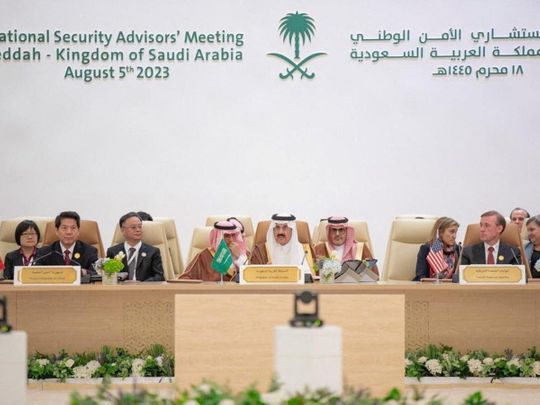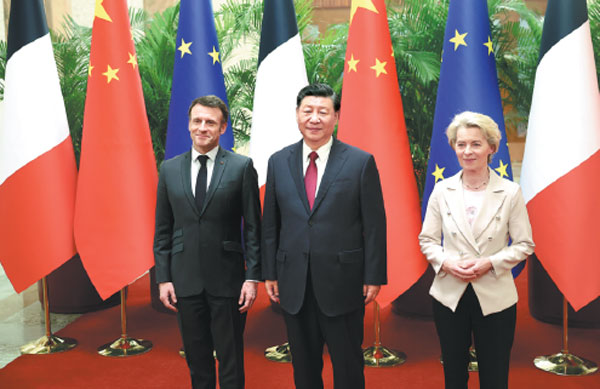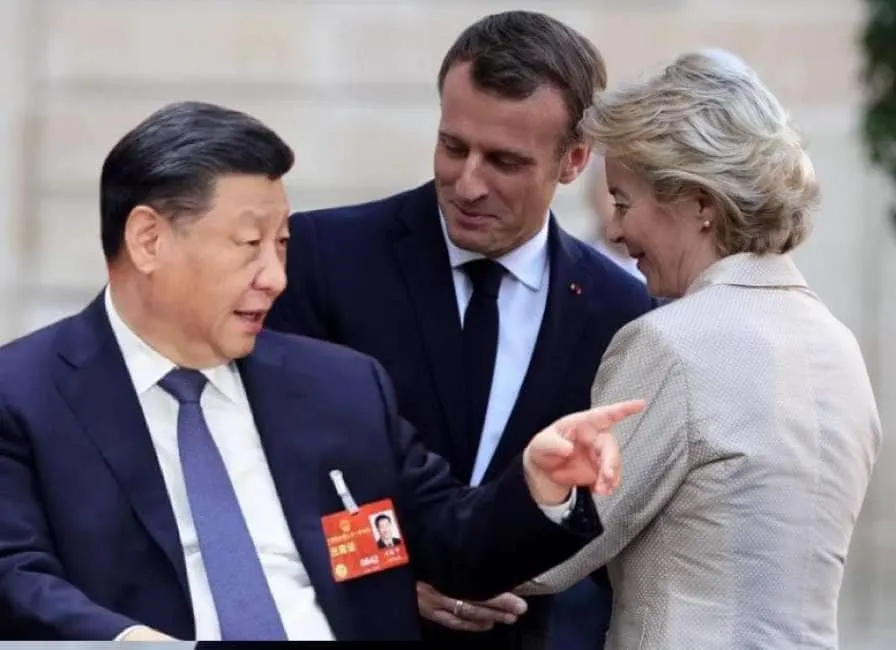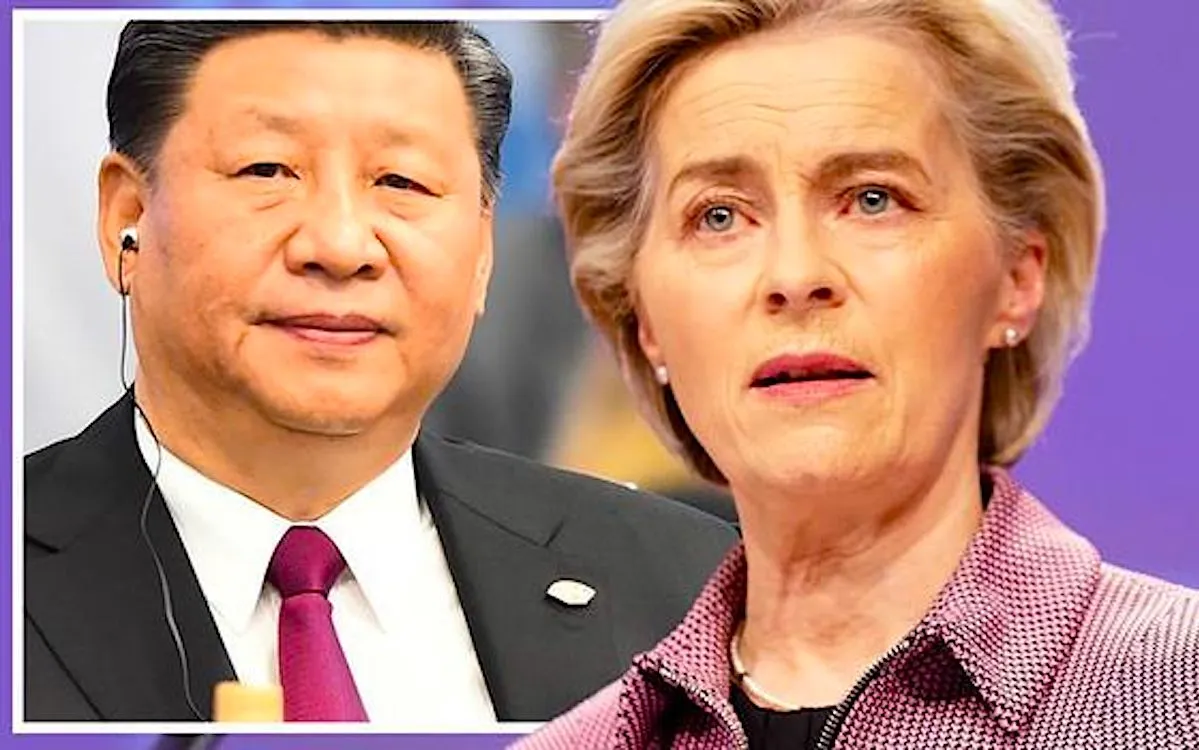The participation of China in the recent meeting in Jeddah regarding the conflict in Ukraine offered a glimmer of hope to European officials seeking a peaceful resolution. While China’s neutral stance remained unchanged, its attendance at a meeting Russia claimed it wasn’t invited to suggests a willingness to engage with the West and not overtly favor Russia. This subtle shift in China’s behavior is perceived as a positive development for Western diplomacy, though concerns persist due to the deep-rooted ties between China and Russia in various domains. China’s continued communication with Russia reaffirms its neutral stance despite its engagement with the international community.
Both countries’ armies have continued working together in military exercises during the ongoing war, including a recent joint naval patrol near Alaska. Russian President Putin plans to visit China in October, following an invitation from China’s Xi Jinping in March.
“China, US, and Saudi Arabia Meet for Talks on Peace in Russia-Ukraine War”

A high-ranking EU official admitted that China might not have strong reasons to end the war, except for its external economic relations. China sees the US as distracted and Russia as a lesser partner now. The main downside is how other countries perceive China due to this stance.
China’s relationship with Europe has become strained. Chinese leaders view European nations as potential allies in the global power struggle against the US. China’s strong ties with Russia and its lack of criticism for Russia’s invasion have made some European countries uncomfortable, prompting a reevaluation of Europe’s relationship with China.
China wants to keep Europe uncertain about its stance by keeping economic ties, making it difficult for those who want Europe to distance itself from China. The new developments in Jeddah might be China’s response to Russia bringing Europe closer to the US. This could lead China to re-engage in the situation involving Ukraine. Alicja Bachulska from the European Council on Foreign Relations agrees with this perspective.China wants to keep Europe uncertain about its stance by keeping economic ties, making it difficult for those who want Europe to distance itself from China. The new developments in Jeddah might be China’s response to Russia bringing Europe closer to the US. This could lead China to re-engage in the situation involving Ukraine. Alicja Bachulska from the European Council on Foreign Relations agrees with this perspective.
China’s current actions seem focused on managing their public image and minimizing potential harm. They are adopting a cautious stance and participating in meetings, possibly to project a positive image. However, this hasn’t significantly changed the situation in Brussels regarding the EU’s complex relationship with China. Officials indicate that the relationship is in a state of equilibrium, aiming to balance Europe’s needs with its desires. Europe still imports much more from China than it exports, indicating a significant reliance. In 2022, the trade deficit was €396 billion ($436 billion), more than double that of 2020.
But, this has occurred as Europe has become less interested in approving official agreements. The Comprehensive Agreement on Investment took almost ten years to negotiate before being tentatively accepted. However, it’s now on hold because China has punished European Parliament members who spoke out about China’s human rights abuses.

In 2019, Europe’s official perspective on China changed to see it as a significant rival. Since then, the European Union (EU) has taken deliberate actions to challenge China’s influence in Eurasia. However, a European official mentioned that the EU hasn’t fully defined its stance on China yet. Positive gestures like the one in Jeddah are welcomed but not transformative. The EU considers China’s behavior, including human rights, Taiwan issue, and corporate espionage, alongside its actions in Ukraine. Europe has a complex relationship with China, needing it for certain matters but also viewing it as a security risk and global troublemaker. Despite the challenges, China has hosted leaders from countries like France, Germany, Spain, and the EU’s Ursula von der Leyen.
Brussels has set ambitious goals in areas like climate change and technology, wanting to stay close to both the US and China. They hope to influence China’s stance on climate change, international rules, and human rights. However, by 2023, Europe realizes that relying too much on China could be risky, even though they might need China’s help to achieve their goals. There’s concern that Europe might become too dependent on China for things like affordable electric vehicles and solar panels. Smaller countries might be tempted by Chinese investments in projects like power stations and roads due to economic struggles.

European officials have expressed concerns about security due to China’s ongoing cyberattacks, primarily focused on corporate espionage. They also want to avoid being overly reliant on China for resources, similar to past reliance on Russia for energy. Both sides’ intentions are complex: China aims to sway European countries away from the US in technology battles, while Europe strives to maintain a balance between its US alliance and engagement with China on global issues, without becoming too dependent on China. This ambitious approach leaves Europe’s future somewhat uncertain, influenced by a country that has become a less significant partner over the last decade.

